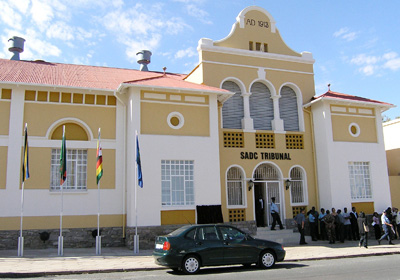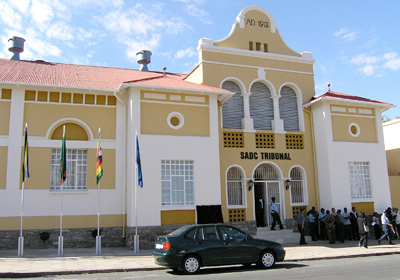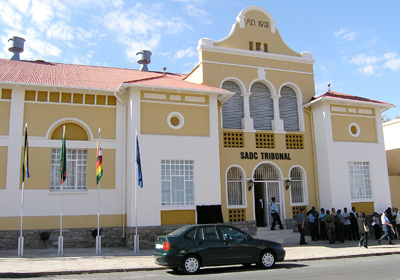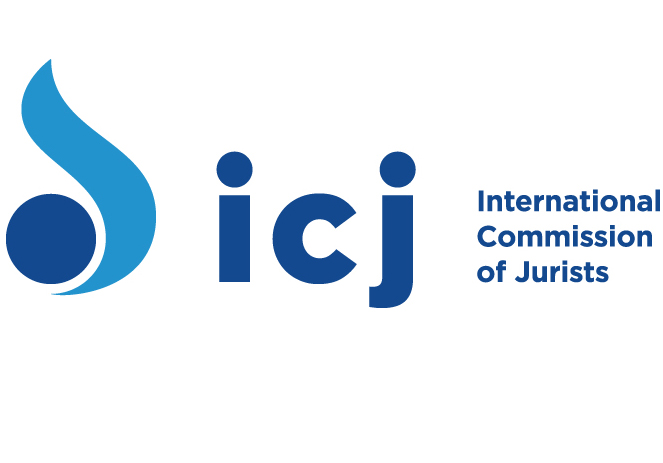
Aug 22, 2012 | News
 The ICJ and other human rights and legal groups say that the the SADC Summit of Heads of State’s decision on SADC Tribunal denies the SADC people the right to approach the court for justice.The ICJ, SADC LA and SALC express their deepest disappointment at the decision taken by the SADC Summit of Heads of State and Government on the SADC Tribunal.
The ICJ and other human rights and legal groups say that the the SADC Summit of Heads of State’s decision on SADC Tribunal denies the SADC people the right to approach the court for justice.The ICJ, SADC LA and SALC express their deepest disappointment at the decision taken by the SADC Summit of Heads of State and Government on the SADC Tribunal.
The Summit’s Final Communiqué explains that the region’s leaders had “resolved that a new protocol on the Tribunal should be negotiated and that its mandate should be confined to interpretation of the SADC Treaty and Protocols relating to disputes between member states”.
That decision effectively destroys an integral SADC organ – the currently established Tribunal – and denies the SADC people the right to approach the court for justice.
It is, as Archbishop Emeritus Desmond Tutu observes, “a tragedy. It is a blow against accountable government and individual rights.”
SADC Tribunal decision-web story 2012 (Download in English)
Photo: Salc bloggers

Jul 27, 2011 | Events
SADC Tribunal: the Summit of the Southern African Development Community (SADC) will continue to have pervasive effects on human rights and the rule of law in the SADC region.
This is despite the advice of the World Trade Institute Advisors (WTIA) and the finding of the SADC Committee of Ministers of Justice/Attorneys-General that the Protocol on the Tribunal took effect through its incorporation into the Treaty by the adoption of the Agreement Amending the Treaty in August 2001; that the effectiveness of both the Protocol and the Agreement Amending the Treaty in August 2001 did not require ratification; and that the SADC Tribunal was legally constituted, and its decisions are binding on all SADC Member States, the SADC,
Regional legal consultative meeting-events-2011 (full text, PDF)
Conference synopsis-event-2011 (full text, PDF)

Aug 22, 2010 | Agendas
The scale of human rights violations committed by the armed forces, police and rebel groups in the Democratic Republic of Congo has meant that little attention has been directed to other failings of the justice sector, including the inadequate regulation of companies and the lack of effective remedies for victims of corporate abuse of human rights. Several studies and reports on human rights violations in the DRC have established the extent of corporate involvement or complicity and the State failure to protect people against violations by business corporations. It is necessary to mobilize and strengthen the capacity of legal professionals to use the law to ensure greater accountability by business for their numerous violations and that victims of such violations be afforded effective redress
The International Commission of Jurists (ICJ) in conjunction with Open Society Initiative for Southern Africa, the African Association for the Defense of Human Rights and the SADC Lawyers Association will, at the sidelines of the Annual General Meeting of the SADC Lawyers Association,hold on 22nd August 2010 a Lawyers’ Dialogue on “Business Involvement in Human Rights Violations and Victims’ Access to Justice in the Democratic Republic of Congo”.
The Dialogue is intended to bring together experts from the DRC and SADC legal fraternity in a one-day activity to reflect on how human rights law can creatively and effectively be used to bring business entities and players to respect human rights standards and to account for their involvement or complicity in violation thereof. In exploring this key question, the following subsidiary questions shall be answered:
- What is the current status of DRC laws regarding business activities in the country?
- How can business entities and actors be held accountable under international and DRC laws?
- How could international criminal law and regional as well as sub-regional legal frameworks be used to punish and prevent corporate involvement in international crimes in the DRC?
- How effective is the domestic civil liability regime in respect of business involvement in gross human rights abuses?
What are the obstacles facing access to justice for victims of business gross human rights abuse in the DRC, and how can they be overcome?
DRC-dialogue violation justice-agenda-2010 (full text in English, PDF)
DRC-dialogue violation justice-agenda-2010 (full text in French, PDF)

 The ICJ and other human rights and legal groups say that the the SADC Summit of Heads of State’s decision on SADC Tribunal denies the SADC people the right to approach the court for justice.The ICJ, SADC LA and SALC express their deepest disappointment at the decision taken by the SADC Summit of Heads of State and Government on the SADC Tribunal.
The ICJ and other human rights and legal groups say that the the SADC Summit of Heads of State’s decision on SADC Tribunal denies the SADC people the right to approach the court for justice.The ICJ, SADC LA and SALC express their deepest disappointment at the decision taken by the SADC Summit of Heads of State and Government on the SADC Tribunal.





